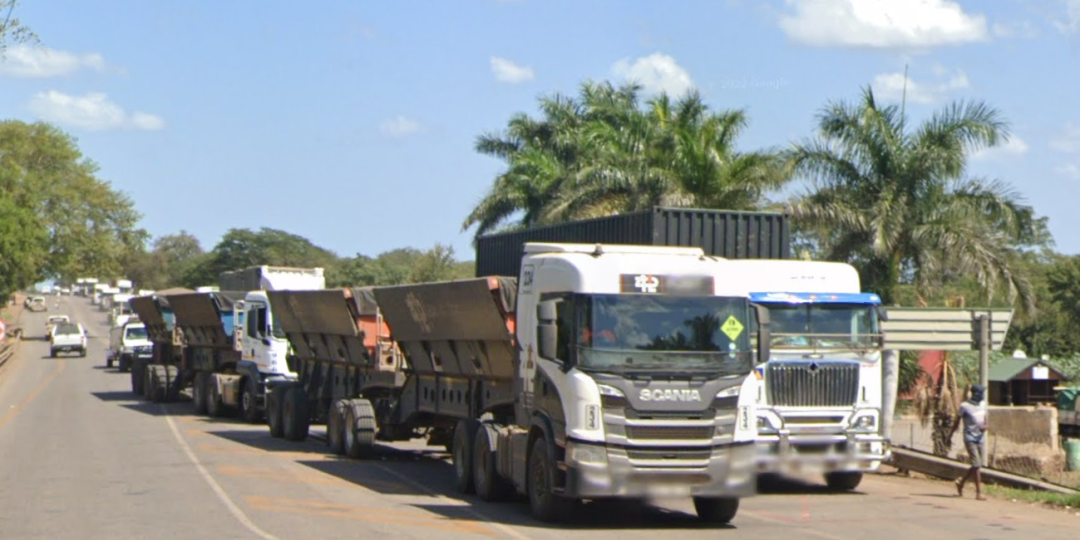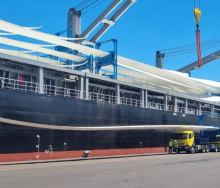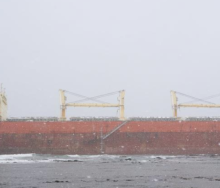Constrained cargo processing at South Africa’s Lebombo border with Mozambique resulted in a backup queue of about 9.6 kilometres this morning, a clearing and forwarding agent based in Komatipoort has said.
According to Newton branch manager Mike Barlow, the queue had formed a double lane of trucks waiting to cross, standing two abreast on the N4 highway from the gate of the border control zone.
Taking a rough guess, he said there could have been about 1000 trucks in the queue.
A transporter who didn’t want to be named said “things are wild this side.
“Trucks that have been waiting to get into Mozambique since last week Wednesday only managed to get through over the weekend. On average it took at least four to five days for loads to be processed.”
Barlow said one client’s truck that had been waiting since Friday was due to cross this morning, “as far as we could tell from satellite tracking”.
Talking about the reason for persistent holdups at the Maputo Corridor transit, he said it was believed to be caused by the South African Revenue Service (Sars).
“From what we understand, it is a Sars IT issue. It often crashes and takes time to come back online.”
Barlow said that load demand on the Corridor, which has seen a significant increase in ore exports to the Port of Maputo, means the border should be run as optimally as possible.
“I can understand a five-hour window (waiting period). That’s okay if one takes the number of trucks moving through that border into consideration. But a five-day border is absurd.”
Barlow said because of delays at the border, where drivers are expected to sleep in their trucks and are often set upon by armed criminals, a client of his had pulled a fleet of 286 trucks off the line to Maputo.
“He’s looking at rerouting his trucks to handle local loads, even taking coal to Richards Bay, which because of an increase in coal exports is battling to shorten its own truck queue on the N2.”
A member of the Transit Assistance Bureau has since said that Sars has made headway in sorting out niggles with its Electronic Data Interchange (EDI) system. She said the clearing of cargo had picked up speed because of it, although the border was still “heavily congested”.
The Komatipoort transporter said trucks that had declared cargo on the 23rd were still queued on the EDI System.
The transporter said on the EDI Bulletin Board it showed that the loads were still pending.
“It’s too slow. It simply can’t carry on like this.”
The many ills that have resulted from border delays also persist.
The transporter spoke of two trucks passing a stationary truck on the side of the road. Police stopped the two trucks and accused the drivers of jumping the queue. One of the trucks was let go after the driver paid a ‘spot fine’. When the other driver said he didn’t have R150 to hand over to law enforcers, they deflated some of his wheels.
“Because of it, one wheel came off the rim and a breakdown company had to be called out. This practice by the South African Police Service has been reported to the relevant authorities, but nothing gets done about it.”
Barlow said the Border Management Authority (BMA), a fairly new government agency formed with the express purpose of consolidating services at South Africa’s land border, was also conspicuous by its absence.
“The BMA controls the border but they’re not joining the party. They have been appointed as the head of this site but they’re just like other officials – not very approachable.”













